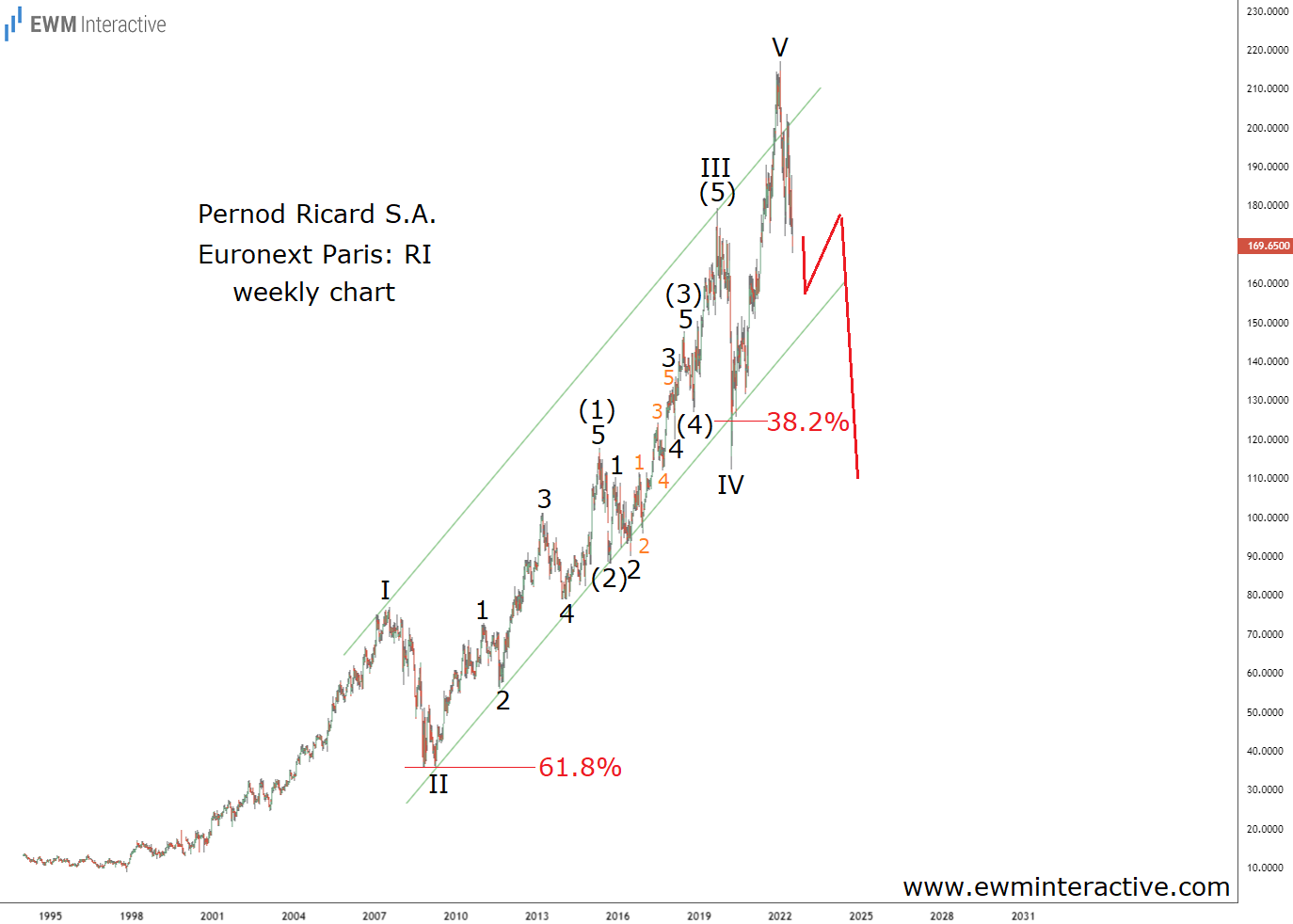Pernod Ricard ‘s Dip Can Evolve Into A 50% Crash
2022.06.20 12:41
Pernod Ricard (OTC:PRNDY) is a French wines and spirits manufacturer, better known by some of its products, such as Absolut Vodka, Chivas Regal and Jameson. The company went public in early-1994 at prices below €14 a share. 28 years later, in January, 2022, the stock reached an all-time high of €217.20, up nearly 1500% since its IPO.
Unfortunately for shareholders, the last six months have been rather disappointing. Pernod Ricard stock is currently trading below €170 a share, down over 22% from its record. Given the company’s financial stability and market position, some may see this dip as a buying opportunity. A quick look at the stock’s weekly chart, however, convinced us we would be much better off just staying aside.
 Pernod Ricard Stock Weekly Chart
Pernod Ricard Stock Weekly Chart
The chart reveals that the uptrend that lasted for 28 years had produced a textbook five-wave impulse. The pattern is labeled I-II-III-IV-V and has been developing within the parallel lines of a trend channel. Three lower degrees of the trend are visible within wave III. It is also interesting to notice that waves II and IV ended shortly after touching the 61.8% and 38.2% Fibonacci levels, respectively.
Pernod Ricard Stock Can Lose Another 35% Before Finding Bottom
If this count is correct, the bearish reversal at €217.20 marks the end of wave V and therefore the end of the entire uptrend since 1994. According to the Elliott Wave theory, a correction follows every impulse. Furthermore, corrections usually erase most or all of the fifth wave. So instead of buying the dip near €170, we believe Pernod Ricard can keep falling towards the support of wave IV near €110. This means the recent weakness is likely to evolve into a full-blown crash of about 50%.
Besides, Pernod Ricard‘s valuation is also quite high. Sales and profits have hardly been growing in recent years, while the stock still trades at a P/E ratio higher than 30. In our opinion, money spent on Pernod Ricard should be focused on its drinks rather than the stock.








